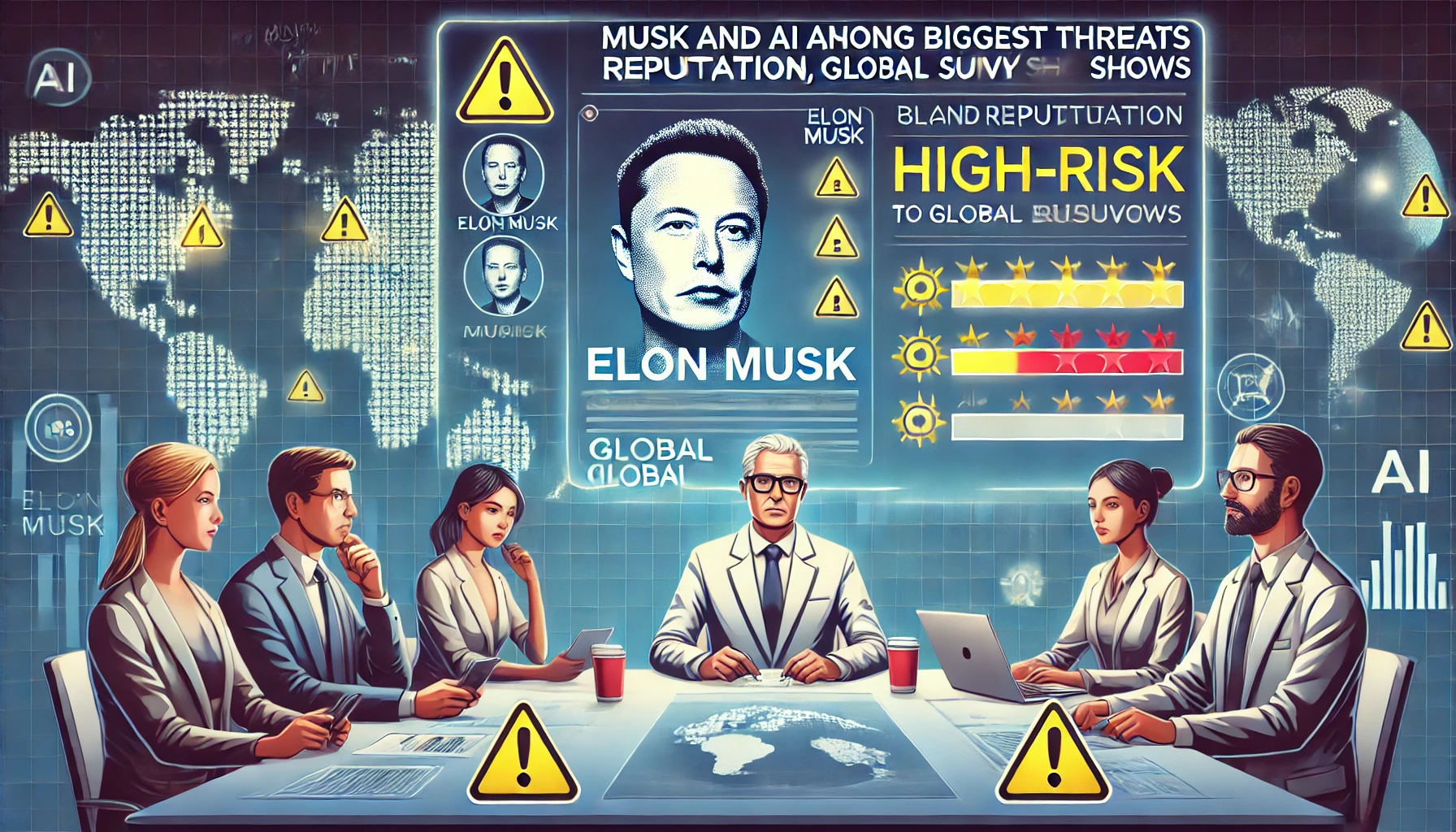Associating with the Donald Trump administration’s multibillionaire adviser Elon Musk and misusing artificial intelligence are among the most surefire ways for companies to damage their brands, a new survey of more than 100 international public affairs leaders found.
Those findings stem from an appraisal conducted by the Global Risk Advisory Council, which was chaired by the head of the US Small Business Administration during Joe Biden’s presidency, Isabel Guzman.
In a statement, Brett Bruen of the Global Situation Room, the Washington DC-based public affairs firm that commissioned the survey, said the council’s “reputation risk index” contains an “unambiguous warning” for chief executive officers. “If you squander stakeholder and consumer goodwill on these issues, it won’t be coming back anytime soon,” said Bruen, before calling on companies to “slow down” and “make a distinction between transitory and tectonic transitions”.
Nearly 30% of a 117-member group hailing from 17 different countries and 58 industries – among them former heads of state and US officials – indicated that aligning oneself with Musk, or being targeted by him, generated the strongest likelihood possible of being thrust under heightened scrutiny.
The world’s richest person – whose holdings include the aerospace company SpaceX, the electrical vehicle manufacturer Tesla and the social media platform X – donated part of his wealth to Trump’s successful run for a second presidency in November. After Trump returned to the Oval Office in January, Musk has overseen brutal federal budget and staffing cuts overseen by the president’s so-called “department of government efficiency” (Doge), giving him what Guzman has described as a “controversial omnipresence in the media landscape”.
That observation falls in line with some public opinion polling that has suggested strong disapproval of the work Musk has done for Trump. A Quinnipiac University survey released in March which showed 60% of voters look down on the way that the businessman and Doge “are dealing with workers employed by the federal government”. Stock in Tesla slumped amid the backlash. And there were subsequently reports that Musk would gradually shift away from his prominent place within the Trump administration.
“The impact of association with influential figures in today’s heavily divided environment cannot be understated, especially with a deeply polarizing leader like … Musk,” Guzman wrote in a summary of the index’s findings.
Yet an even greater threat to brands were earning stories that feature “creating deepfakes, misinformation, biased decision-making or unethical applications that cause harm or manipulate public perception”, the survey said. Attracting that kind of coverage was reportedly viewed “as the most likely to gain negative online news attention”, the survey added.
An unnamed council member reportedly said: “AI, if not understood or managed in companies, can have an incredible trickle-down effect that may not be reversible.” One of the group’s experts noted that organizations these days need to regard AI policies as equally standard to those that account for more mundane aspects of their operations.
Rolling back diversity, equity and inclusion (DEI) initiatives aiming “to ensure fair treatment and full participation for all individuals” was labeled brands’ third top risk. The Trump administration has aggressively moved to eliminate such measures within the government, military and beyond, including at Harvard, where the White House recently axed more than $2bn in federal research funding after the university refused to end DEI programs, one of several demands from the president.
Anticompetitive practices and facing allegations of defamation round out the top five reputational risks flagged by the first edition of a survey planned for quarterly publication.
“This data is not just numbers; it indicates the complex communications challenges facing organizations constantly,” wrote Guzman, adding the committee’s members suspect that reputational threats are bound to only escalate in the short term.
Other members of the council that produced the survey include Iceland’s former foreign affairs minister Thórdís Kolbrún Reykfjord Gylfadóttir; Bank of Ireland public affairs head Paul O’Brien; DoorDash’s global head of public affairs Taylor Bennett; American Association of Exporters and Importers president Eugene Laney; and Maria Toler, the founder of SteelSky Ventures, a venture capital fund focused on women’s healthcare.
Source: https://www.theguardian.com/


